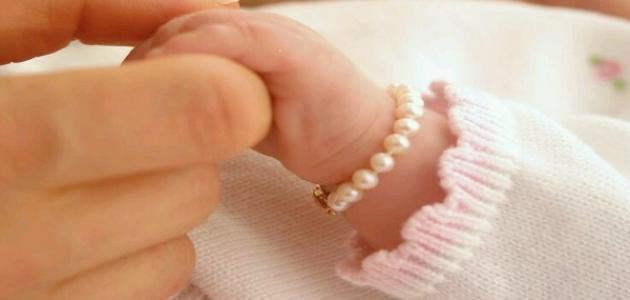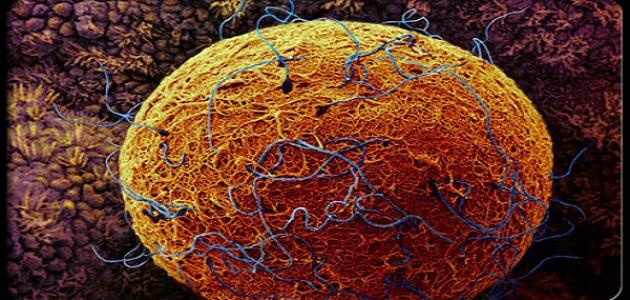Contents
Pregnancy
The term pregnancy refers to the period during which the fetus grows in the woman's uterus, and this period lasts approximately 40 weeks or nine months, as the count starts from the last menstrual cycle before conception. [1]
How to know pregnancy
Symptoms and signs of pregnancy
Pregnancy symptoms differ from one woman to another and from pregnancy to another, and all or some of the symptoms may occur, but their occurrence does not confirm pregnancy. It may be the result of other causes, and it can be said that the only way to determine whether or not pregnancy is present is through pregnancy tests. Some of these symptoms and signs are mentioned below: [2]
- Simple vaginal bleeding and cramps: similar to those that usually occur in the menstrual cycle, except that in pregnancy they are lighter, and they occur due to the implantation of the fertilized egg in the wall of the uterus, in addition to that, some white-colored secretions may appear and may continue throughout the pregnancy, but it is not Harmful and does not require treatment unless accompanied by a bad smell or a feeling of itching or burning, then you should consult a doctor to find out the cause.
- Absence of a menstrual period: It is the most obvious sign of pregnancy, and the absence of a menstrual period urges most women to conduct a pregnancy test, and this does not exclude the possibility of its absence due to reasons other than pregnancy.
- Changing desire towards food: a pregnant woman may want to eat certain types of food, and be alienated from other types, this is due to the hormonal changes that occur during pregnancy , and this may continue throughout pregnancy, but it often eases during week 13 to 14 of pregnancy, and in all Conditions It is imperative for a pregnant woman to maintain good healthy nutrition.
- Changes in the breast: It is one of the early symptoms of pregnancy, and it appears in the form of swelling or a feeling of pain or tingling in the breast, and the area around the nipple may become darker, and these changes are due to the rapid difference in the level of hormones within a week or two of pregnancy, but the body gets used to After several weeks the new hormone levels are released, which relieves these symptoms.
- Constipation: It occurs during pregnancy due to the high level of the hormone progesterone, which makes the intestinal movement slow, and to relieve constipation, it is recommended to drink plenty of water, exercise, and eat foods rich in fiber.
- Feeling tired and exhausted: This feeling is noticed since the first week of pregnancy, and it occurs due to the high level of the hormone progesterone, and other reasons may contribute to its occurrence, such as a decrease in the level of sugar and pressure in the blood, and an increase in blood production as well, and to alleviate this fatigue, it is recommended to take a large rest and eat foods Rich in protein and iron. [2] [3]
- Nausea and vomiting: It is also called morning sickness because it is more common in the morning, but it may occur at any time of the day, and it is worth noting that a pregnant woman may feel it in the period between the second and eighth week of pregnancy, but it may continue throughout pregnancy, In fact, the cause of its occurrence is unknown, but it is believed that pregnancy hormones have a role in its appearance. This may be accompanied by a feeling of dizziness or fainting due to dilated blood vessels and hypotension. [2] [3]
- Frequent urination: This symptom begins between the sixth to the eighth week of pregnancy, and it is caused by a change in the hormonal balance in the body. As the body produces the pregnancy hormone, as we mentioned, which in turn increases blood circulation to the pelvic area, which leads to frequent urination . [2] [3]
- Mood swings: These are common, especially in the first weeks of pregnancy, due to hormonal changes. [2] [3]
Pregnancy tests
Pregnancy examinations are concerned with detecting the presence of the pregnancy hormone in the urine or blood of a pregnant woman, as this hormone is excreted immediately after implantation of the fertilized egg into the uterine wall, and this usually occurs six days after fertilization of the egg , and it is worth noting That this hormone rises rapidly in pregnant women, as it doubles every two to three days. Pregnancy examinations can be classified into two main types as follows: [4]
- Urine examination: This examination is performed at home or in a doctor's office, and is often performed by women after a week of late menstruation, and to obtain accurate results, it is preferable to conduct the examination in the morning so that the urine is more concentrated, and it should be noted that this examination is accurate, but it is Less accurate than a blood test.
- Blood test: The examination is performed in the doctor's office, and is characterized by its ability to detect pregnancy at an early time, but its results may be delayed compared to a home urine test , and this examination can be classified as follows:
- A qualitative examination of the pregnancy hormone in the blood: The examination reveals the presence or absence of the hormone in the blood, thus confirming or denying pregnancy, often within 10 days of the delay of menstruation.
- A quantitative test for the pregnancy hormone in the blood: The test measures the amount of the hormone in the blood even if its concentration is low, and it should be noted that this test also helps to monitor any problems during pregnancy.
Stages of pregnancy
The period of pregnancy can be divided into three basic stages, as follows: [1]
- The first stage: The first stage begins with the fertilization of the sperm and the egg, to form a fertilized egg that then moves from the fallopian tube to the uterus to implant in its wall, and later forms the embryo and placenta that connects the mother to the fetus and provides it with food and oxygen, and it is worth noting that this stage extends from the first week to the week 12 of Aries.
- The second stage: It extends from week 13 to week 28, and during this stage ultrasound can be used to find out the sex of the fetus and detect any congenital defect, and during the twentieth week the mother can feel the movement of the fetus, but during the twenty-fourth week the fetus awakes And he sleeps in a regular way and his fingerprints are formed.
- The third stage: extends from week 29 to week 40, and the bones are often fully developed despite their tenderness, and the fetus can open and close its eyes at the 32nd week of pregnancy, and if the birth occurs before the 37th week, it is considered preterm premature labor, and in this The condition The fetus is at great risk of developing problems with vision, hearing, or cerebral palsy, and it is worth noting that fetuses born after 39 weeks or more enjoy better health because organs have enough time to grow such as lung, brain, and liver . This time is considered a late labor.
References
- ^ A b "About Pregnancy" , Www.nichd.nih.gov , Retrieved 11-2-2018. Edited.
- ^ A b t w c "Pregnancy the Symptoms" , the www.webmd.com , Retrieved 13-2-1028. Edited.
- ^ A b t w "What ' are On Some Common Of pregnancy ' search of signs" , Www.nichd.nih.gov , Retrieved 13-2-2018. Edited.
- ↑ "Pregnancy Tests" , www.webmd.com , Retrieved 14-2-2018. Edited.










